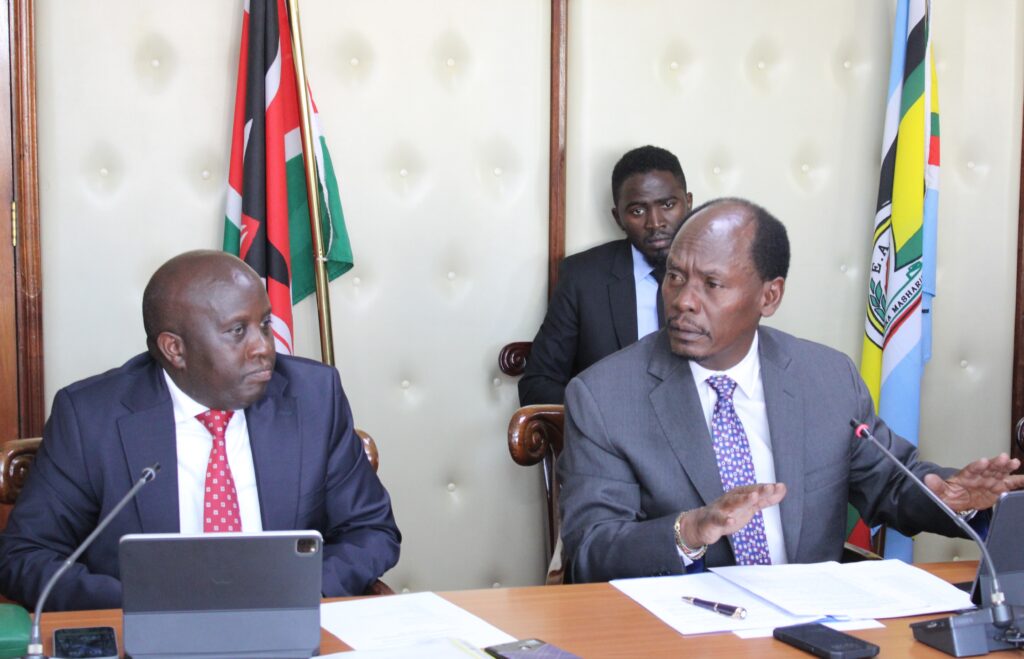Kenya – Ministry of Information, Communications, and The Digital Economy Cabinet Secretary (CS) William Kabogo has emphasized the urgent need for full digitalization of government operations to enhance service delivery and drive economic growth. He advocated for a cohesive, whole-of-government approach to achieve this goal and pledged the ministry’s leadership in coordinating efforts across all sectors.
Leading the Charge for Digital Transformation
Speaking during a meeting with heads of departments from the State Department of ICT, CS Kabogo stressed the importance of eliminating manual records, automating backend processes, and integrating systems across ministries and departments. He highlighted the inefficiencies caused by siloed approaches in the past and committed to ensuring strict adherence to established guidelines for a unified digitalization agenda.
“The Ministry of ICT will lead efforts to coordinate the whole-of-government approach to digitalization,” said Kabogo. He added, “By the time I leave office, I aim to have a fully digitized government. We are setting a 90-day deadline for our ministry to transition to paperless communication, including letters and memos.”

Digitalization as a Tool Against Corruption
Kabogo outlined how digitalization can play a critical role in combating corruption. By making government operations transparent and accessible, it becomes harder for malpractice to occur.
“When government services are digitized from start to finish, oversight bodies like the Controller of Budget and the Auditor General can access real-time information. They can compare expenditure plans with available budgets, addressing the issue of pending bills,” explained Kabogo. He also proposed introducing a reward system to honor individuals actively fighting corruption within their ministries.
Progress and Future Plans
Under the Ministry of Lands’ digitization program, significant strides have already been made, with approximately Sh3.9 billion spent on scanning and digitizing records. However, Kabogo called for the complete migration to digital systems to prevent the creation of new physical records.
State Department for ICT and Digital Economy Principal Secretary (PS) Eng. John Tanui echoed Kabogo’s sentiments, highlighting the critical role of ICT in the government’s performance.
“ICT is an enabler for all sectors. Our digital economy is expanding at a rate 2.5 times faster than the physical economy. To support this growth, the ministry is addressing challenges such as cybersecurity, misinformation, and disinformation while building 1,450 digital hubs nationwide,” Tanui stated.
Challenges in Transitioning to Digital Systems
Despite progress, the digital transition has faced hurdles. Many ministries have limited their efforts to scanning documents without fully integrating digital processes, resulting in the generation of new manual records. Tanui emphasized the need for complete system migration, citing the Ministry of Lands’ success as an example of the benefits of a comprehensive approach.
“As long as processes remain partially manual, new physical records will continue to emerge,” said Tanui. “The Ministry of Lands’ multi-agency team developed a digital system that has proven its value over time. We are now accelerating digitization efforts in centers across the country.”
Bottom-Up Economic Transformation Agenda
The ministry’s digitalization initiatives align with the Bottom-Up Economic Transformation Agenda (BETA), which prioritizes ICT as a pillar for national development. By enhancing connectivity and building digital infrastructure, the government aims to foster economic growth and improve service delivery to citizens.
The push for full digitalization reflects a forward-looking vision for governance, one that embraces technology to create a more transparent, efficient, and inclusive future for all.







